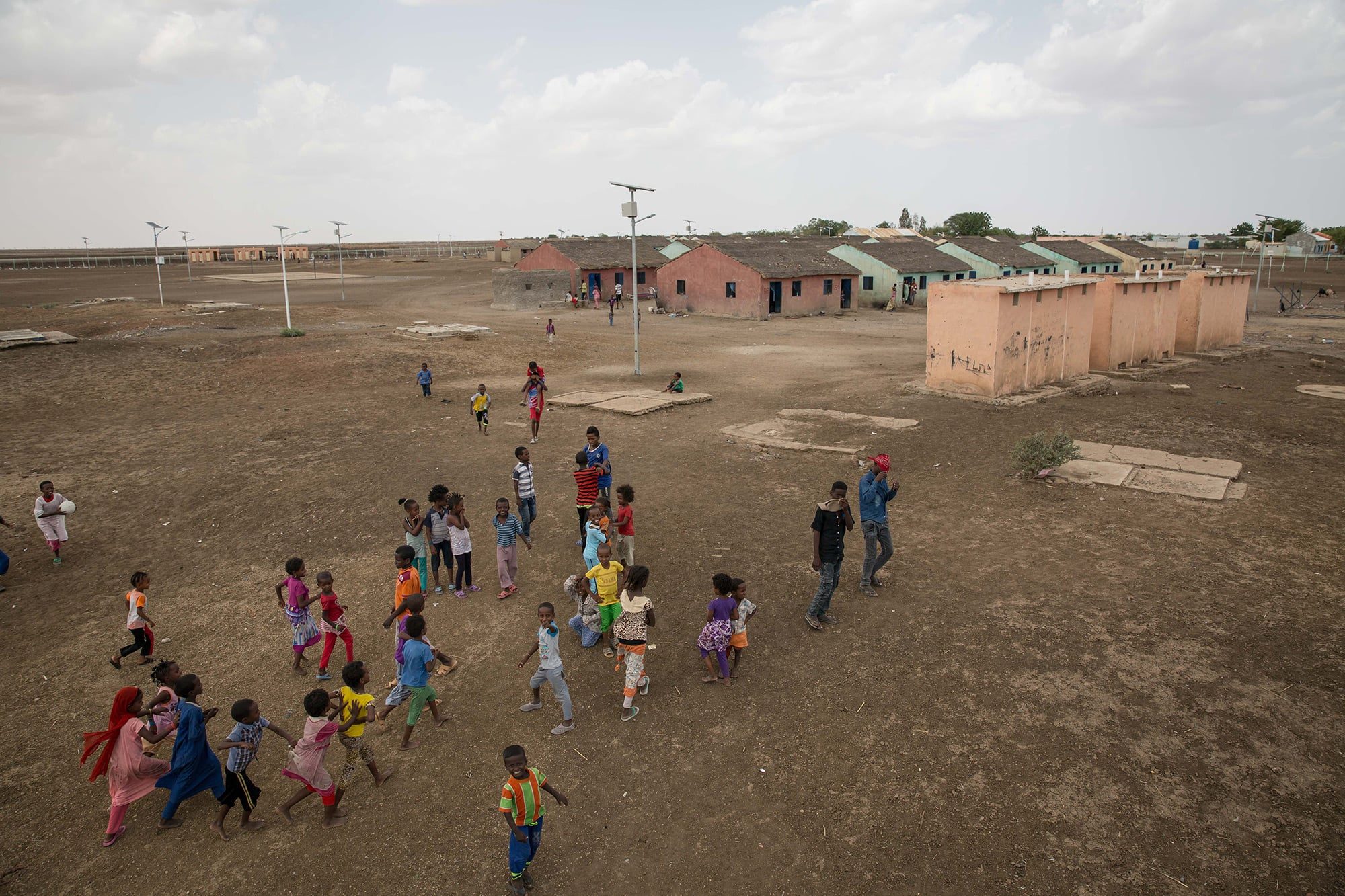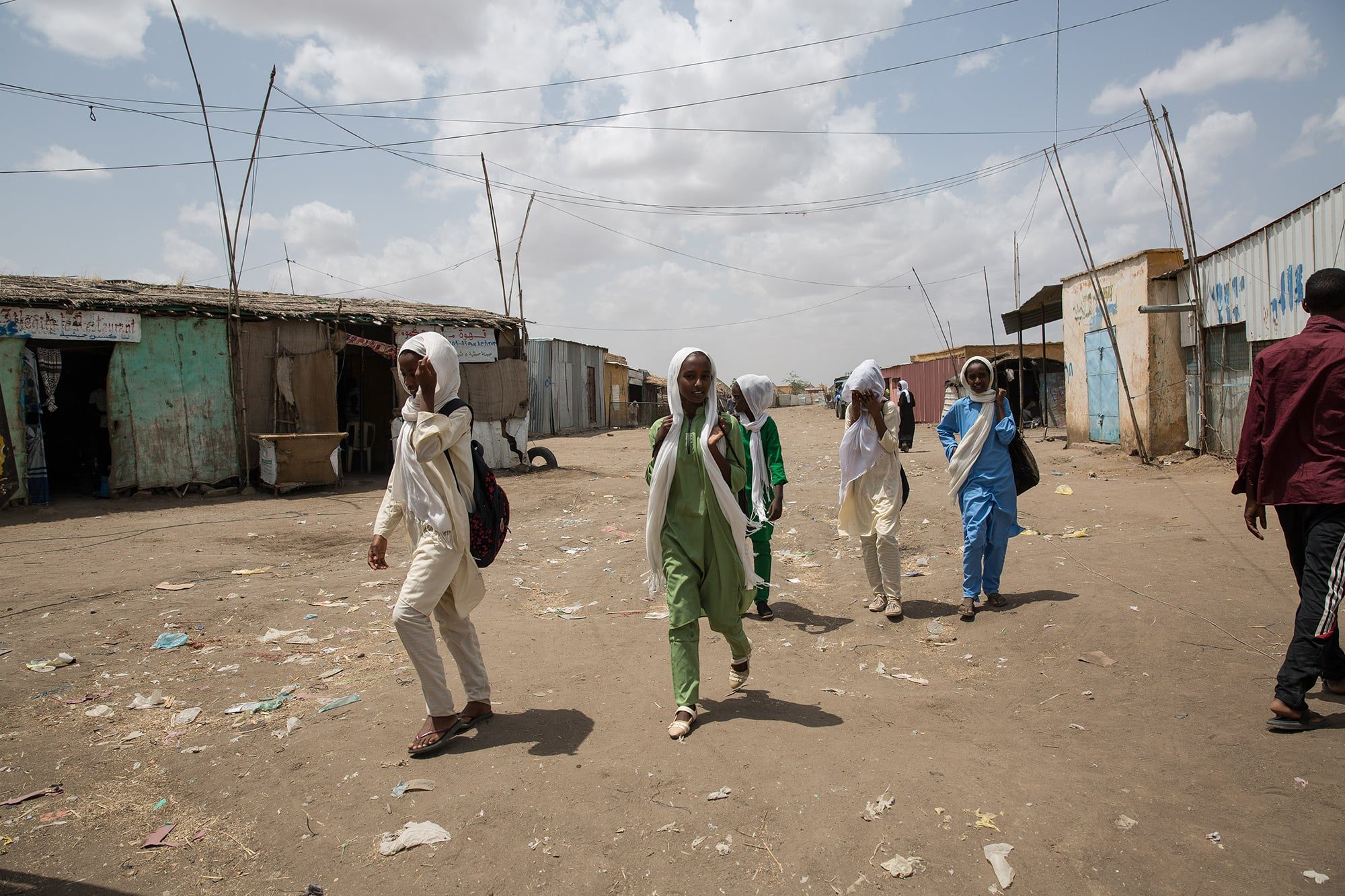An internal UN refugee agency investigation into allegations of corruption in its Sudan resettlement operations has determined that a staff member abused their power by soliciting bribes from refugees.
In an email, UNHCR spokesperson Cécile Pouilly told Journalists for Transparency that the probe, which began early last year, has now concluded and that the staff member in question has been on administrative leave without pay since 15 March.
“The case has been referred to the Division of Human Resources in accordance with the process for disciplinary action,” Pouilly noted. “We expect the disciplinary process to be finalised soon.”
Witnesses who gave testimony during the investigation told Journalists for Transparency that they believe UNHCR’s conclusion downplays the pervasiveness of corruption within the Khartoum office. All of the witnesses asked to remain anonymous for fear of retaliation.
“[There is] not just one criminal. This type of crime does not work with one person,” said one refugee. “There is so much going on, from [the] reception to [the] senior protection officer.”

A wider problem?
Two UN officials who have worked in Sudan, and asked not to be named, told Journalists for Transparency that rumours about money changing hands between refugees and staff in UNHCR’s Sudan operations have been around for decades.
One of the officials said it was hard to see how the internal investigation could find just one person guilty, “as opposed to identifying that there are weaknesses in the system”.
Pouilly said UNHCR has been implementing new measures to strengthen the oversight of their resettlement programme, in parallel with the investigation.
“This includes improving the registration and data management processes, particularly through the systematic use of our biometric management registration system,” she said. “Anti-fraud focal points have been appointed in different offices and specifically trained to address fraud in protection processes.”
In mid-May 2018, following 10 months of interviews with refugees and former UN staff members, Journalists for Transparency, in partnership with The New Humanitarian, published an exclusive report detailing allegations of widespread corruption and exploitation of refugees by UNHCR staff and people who claimed to be brokers for them in Khartoum.
Among other alleged abuses, refugees and former staff members said some staff made refugees pay bribes of tens of thousands of dollars to be resettled to a Western country, a process that is supposed to be free and based on need.
Two days after publication, UNHCR released a statement saying the agency was suspending refugee resettlement from Sudan in connection with ongoing investigations, while deploying an anti-fraud team.
“At present, we are still dealing with allegations, based on reports that have come from refugees,” UNHCR Representative for Sudan Noriko Yoshida said at the time.
“Nonetheless, these are worrying [allegations] and the integrity of the Sudan resettlement programme has to be assured beyond any doubt,” she said. “Should wrongdoing be confirmed, those responsible can expect the consequences to be severe.”
Resettlement was suspended 15 months ago, in May 2018, and no date has yet been given for its resumption.
Throughout this period, refugees in Sudan have argued that suspending resettlement is not the answer, saying it punishes the refugees instead of improving the system they allege exploited them.
“They didn’t look into the life of refugees [who] need urgent help and kept [the] suspension of resettlement. When the suspension is continuing, refugees are affected, not the corrupt [people],” one refugee, who gave testimony during the investigation, said this week. “I think it is part of corruption, punishing refugees in such ways.”

Retaliation fears
Refugees allege retaliation against witnesses began in the days after UNHCR publicly announced the internal investigation, with several who had observed wrongdoing telling Journalists for Transparency they were phoned or called in for interviews by UNHCR staff and the Sudanese government’s Commission for Refugees, and warned not to testify.
Two refugees said they were told their years-old cases with the UN had been closed and they no longer had any chance of being resettled to a safer country.
Several witnesses, who spoke to UNHCR’s Inspector General’s Office (IGO) as part of the investigation, said subsequent pleas for protection to UNHCR were ignored.
“After taking the information IGO want[ed] from us, they didn’t help us in any way. We don’t feel free now because we have exposed many crimes,” one refugee witness told Journalists for Transparency. “We made a concerted effort to expose this crime. Our lives are in danger because of our testimony. I ask the concerned department to take immediate action.”
Journalists for Transparency understands at least one refugee witness was relocated to another country.
Refugees interviewed by Journalists for Transparency between 2017 and 2018 repeatedly said they needed to go public because they alleged UNHCR management was ignoring what was happening, despite it being close to common knowledge.
Though UNHCR says the investigation has concluded, refugee witnesses say they have not been informed of this directly.
In March, state media reported that the Sudanese government’s refugee commissioner, Hamad al-Jazouli, had been “relieved” of his position, following months of rumours he was being investigated for corruption.
It is unclear whether any investigation into al-Jazouli was related to the internal UNHCR probe.
A problem beyond Sudan
Allegations of corruption by UNHCR staff and contractors are common in many East African countries, including Kenya, Uganda, and Ethiopia.
Dozens of refugees interviewed by Journalists for Transparency in those countries said when they witnessed corruption they were frightened to speak out, for fear of retaliation. Having fled their countries, they are heavily reliant on UNHCR for their basic needs and future opportunities.
UNHCR has previously denied that widespread corruption is a problem, though it says the agency is “not immune to risk or failure on the part of individuals”, which is why they have a “solid safeguarding structure”.
The number of resettlement places available for refugees greatly outstrips demand, due to a lack of countries offering spaces. Of the estimated 1.2 million refugees who required resettlement globally in 2018, only 55,692 were actually moved – less than five percent, according to UNHCR figures.
Corruption among staff of the UNHCR and the Sudanese government’s Commission for Refugees, which it partners with, is one of the reasons refugees told Journalists for Transparency they preferred to head to neighbouring Libya, before trying to cross the Mediterranean to Europe.
“The problem is at the beginning,” said one Eritrean, who spent years between smugglers and detention centres in Libya, after passing through Sudan. “I’m sure if UNHCR in Ethiopia and Sudan worked correctly, no one would want to come to Libya.”
MORE FROM THIS ISSUE
The Baltic border loophole in EU’s Russia sanctions
“Back door privatization”? Global South’s Share of Deep-Sea Mining Profits Under Scrutiny
Escaped human trafficker put on Netherlands ‘most wanted’ list
Africa’s Hidden Victims: Pandemic Prompted Surge in Police Brutality
This story is being co-published with 100Reporters
Africa’s Hidden Victims: Pandemic Triggered Hunger, as Food Aid Fell Prey to Power Politics and Corruption
Africa’s Hidden Victims: healthcare Workers Struggled Amid Lack of PPE, Salary Delays and Disappearing Hardship Pay
CORRUPTION AND BLAME GAME STALLS PROGRESS
How did one of North Africa’s biggest smugglers escape prison?
Evidence suggests corruption and police complicity led to the escape of a notorious smuggler accused of transporting, extorting, and imprisoning thousands of migrants.
Outlawed Tradition Returns – Pandemic Property Grab
Coronavirus leaves widows in Zambia homeless, as in-laws claim their homes
As election looms, lack of funding from government at heart of state’s inability to tackle Covid-19
As election looms, lack of funding from government at heart of state’s inability to tackle Covid-19
Who benefits from COVID-19 funding in Myanmar?
Who benefits from COVID-19 funding in Myanmar?
COVID-19 patients asked for “pocket money” at Yangon hospitals
COVID-19 patients asked for “pocket money” at Yangon hospitals
Uber in Kenya: Where Disruption Met Desperation
How a String of Big Promises Led to Shattered Dreams Shifting corporate moves left drivers saddled with debt
Built By Impunity
A J4T Investigation into the record of poor building-code enforcement that’s allowed sub-standard construction in Kenya and Mexico.
UN Refugee Agency reopens corruption investigation in Ugandan camp
UN Refugee Agency reopens corruption investigation in Ugandan camp
Somali people at Kenya’s sprawling Dadaab refugee camp allege that UN staff want money for everything from food to repatriation
Somali people at Kenya’s sprawling Dadaab refugee camp allege that UN staff want money for everything from food to repatriation
Asylum for Sale: Male refugees victimized by sexual violence say officials wanted bribes to help
Male refugees victimized by sexual violence say U.N. staffer wanted bribes to help them
Asylum for Sale: Whistleblowers say U.N. refugee agency does not protect us or address corruption
The U.N.'s refugee agency has failed to address corruption or protect whistleblowers.
Trafficking in Impunity
Convicted of Trafficking Women in Nepal, Politician Claims Mistaken Identity. Remarkably, Supreme Court Clears Him of Charges.
In Kenya and Uganda UN caseworkers are demanding bribes from refugees. Fraud and corruption are endemic, those who speak out are punished.
In some of the world's most desperate places, UN caseworkers are demanding bribes from refugees.
Built to Fail: The Ravaged Landscape of Construction Corruption
In Nairobi, images of collapsed apartment and business towers have captured public attention and directed light to a global problem. Poor building-code enforcement has allowed sub-standard construction, with tragic consequences from Nairobi to Mexico City.
Unfair Trade
The goal is considered honorable; consumers appreciate being able to help make life better for farmers and laborers in Africa. But on some farms in Kenya, Ghana and Cameroon, reality among the crops seems quite different.
East Goes West
Dangerous passage and uncertainty in the Mediterranean and Europe push migrants and refugees to the Americas.
Corruption and Poaching: The Tusk at Hand
Poachers' sophisticated network drives trafficking of ivory and horns through East Africa
Egypt’s Young Preservationists Shut Out by Old Guard
How Egypt’s best hopes for the future of its national treasures are shut out by the old guard



